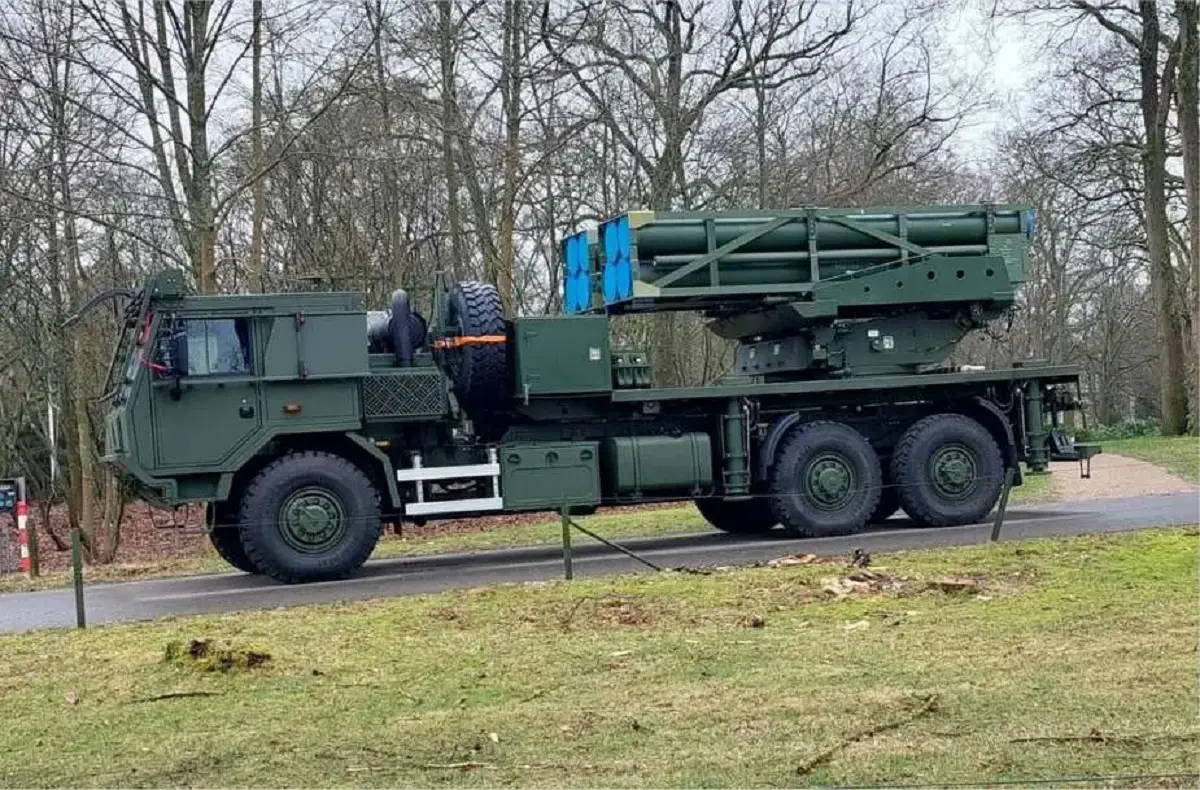Venator News has reported a significant development in the Dutch Armed Forces as they recently took delivery of the first two PULS rocket launcher systems from the Israeli defense company Elbit Systems on February 19, 2024. The procurement plan outlines the acquisition of a total of 20 PULS systems, which will be organized into two operational batteries, each consisting of eight rocket launcher systems divided into two platoons. In a comprehensive approach to readiness, an additional four PULS systems will be designated for training purposes and backups. The integration of these PULS rocket artillery systems is aimed at enhancing the firepower capabilities of the 43 Mechanized Brigade and the 13 Light Brigade within the Dutch military. This strategic move is expected to create a flexible Artillery Division, combining the PzH2000NL self-propelled howitzers with the newly acquired PULS rocket artillery systems.
One notable feature of the PULS system is its adaptability, showcased by its capability to be mounted on various truck chassis. While the current Dutch systems are mounted on Tatra 815-7 Force 6×6 trucks, there are plans to transfer them to Scania Gryphus trucks equipped with armored cabins. Although specific details regarding the types of rockets to be utilized by the Netherlands remain undisclosed, it is expected that this information will become available as deliveries progress, with completion anticipated by 2026. The Scania Gryphus, also known as Scania XT or Scania XT Gryphus, is poised to serve as the operational truck for the Dutch Armed Forces in the future. Manufactured by the Swedish company Scania and assembled at their production center in Zwolle, the Gryphus is derived from the Scania XT series. It serves various branches of the Dutch military, including the Royal Army, Navy, Air Force, and Royal Military Police, along with the Defense Support Command and other affiliated units.

The PULS (formerly known as Lynx multiple rocket launcher) is a multiple rocket launcher developed and manufactured by ELBIT Systems (formerly Israel Military Industries) and used by Israel Defense Forces and other countries. The multi-purpose launcher features two PODS; each POD is designed for a specific rocket type: the Accular 122mm (18 rockets) with a range of up to 35km, the Accular 160mm (10 rockets) with a range of up to 40km, the EXTRA (4 rockets) with a range of up to 150km and the Predator Hawk (2 rockets) with a range of up to 300km. With its unique design, the PULS can also support future growth capabilities such as the ability to launch loitering munitions, including the canister launched configuration of Elbit Systems’ SkyStriker loitering munition. The PULS is designed to maximize response with optimal firing flexibility, without the need for special modifications to the system. A typical firing mission can be executed in less than one minute from initiation.
The Defense Technology Institute (DTI) of Thailand is collaborating with Elbit Systems to develop a Thai version of the PULS called D-11A. In January 2023, Denmark announced negotiations for the acquisition of 8 PULS systems for the Royal Danish Army. Subsequently, in March 2023, the Dutch Ministry of Defence confirmed the acquisition of 20 PULS systems for the Royal Netherlands Army, with the first systems expected to be delivered in the same year. The contract, valued at 305 million dollars, was signed on May 18. On October 10, 2023, the government of Spain decided to order the locally manufactured version of the PULS systems for the SILAM program (es:SILAM). KMW and Elbit have established the concept “Euro-PULS” for the next generation European Long Range Rocket Artillery as the successor system for the MLRS.
















